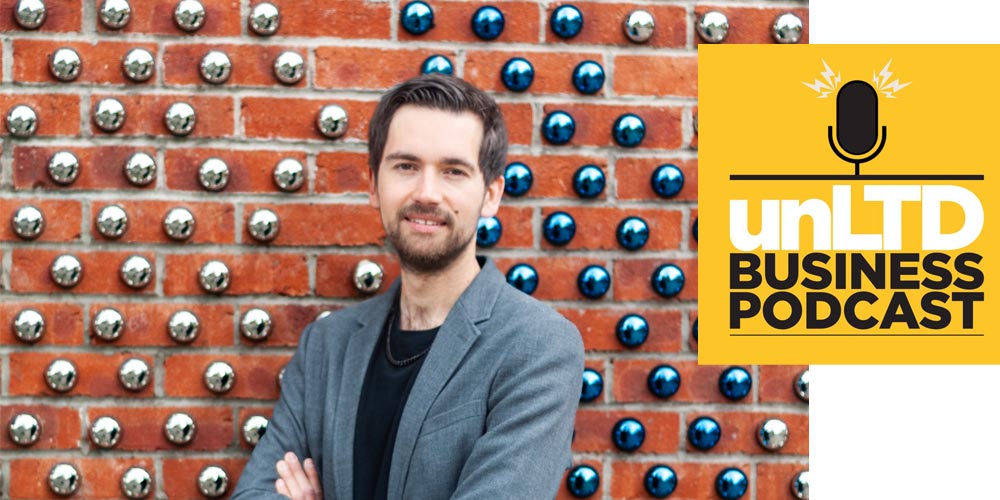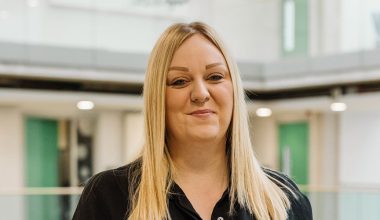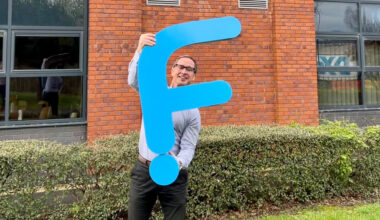Stevan Parkin’s journey from anxious teenager to Twitch partner, esports player and now founder and CEO of edtech startup MiniVox is anything but conventional. In conversation with unLTD podcast host James Marriott, he shares how a love of gaming turned into purpose – and why today’s young people need better online spaces.
Stevan Parkin wasn’t the kind of student teachers predicted would one day run a tech company. As a teenager, he struggled to make friends, faced bullying at school and often escaped into the digital world.
“I used to combat that by going home, going upstairs to my bedroom, locking the door and playing on my Xbox 360,” he told unLTD. “That was my safe haven. I used to play Call of Duty 4 for 11, 12 hours a day.”
Those long hours behind a controller weren’t just escapism – they quietly laid the groundwork for a skillset rooted in digital communication, emotional resilience and community-building. Though his grades were average and university didn’t quite work out, Parkin soon found another outlet: entrepreneurship.
At 17, while most of his friends were out clubbing, Parkin found a creative workaround. “I couldn’t go out – I didn’t have a fake ID, and I’ve got a mole on my face so none of them matched anyway,” he laughed. Instead, he asked his mates to send him funny photos from their nights out, and started uploading them to a Facebook page he dubbed Embarrassing Nightclub Photos of the Week.
“I learned quickly that there was a huge demand for funny content,” Parkin said. “People started sending me pictures, and it just grew – 100,000, 500,000, a million, two million, three million followers.”
He pivoted the page into a monetised website using Google AdSense, generating hundreds of thousands of hits a day. That side project – born of FOMO and curiosity – turned into a profitable online business and earned him awards through The Big Challenge, a Sheffield schools enterprise initiative.
Although he eventually shut the site down – “it became toxic… what started as fun became something that wasn’t” – the experience proved transformative.
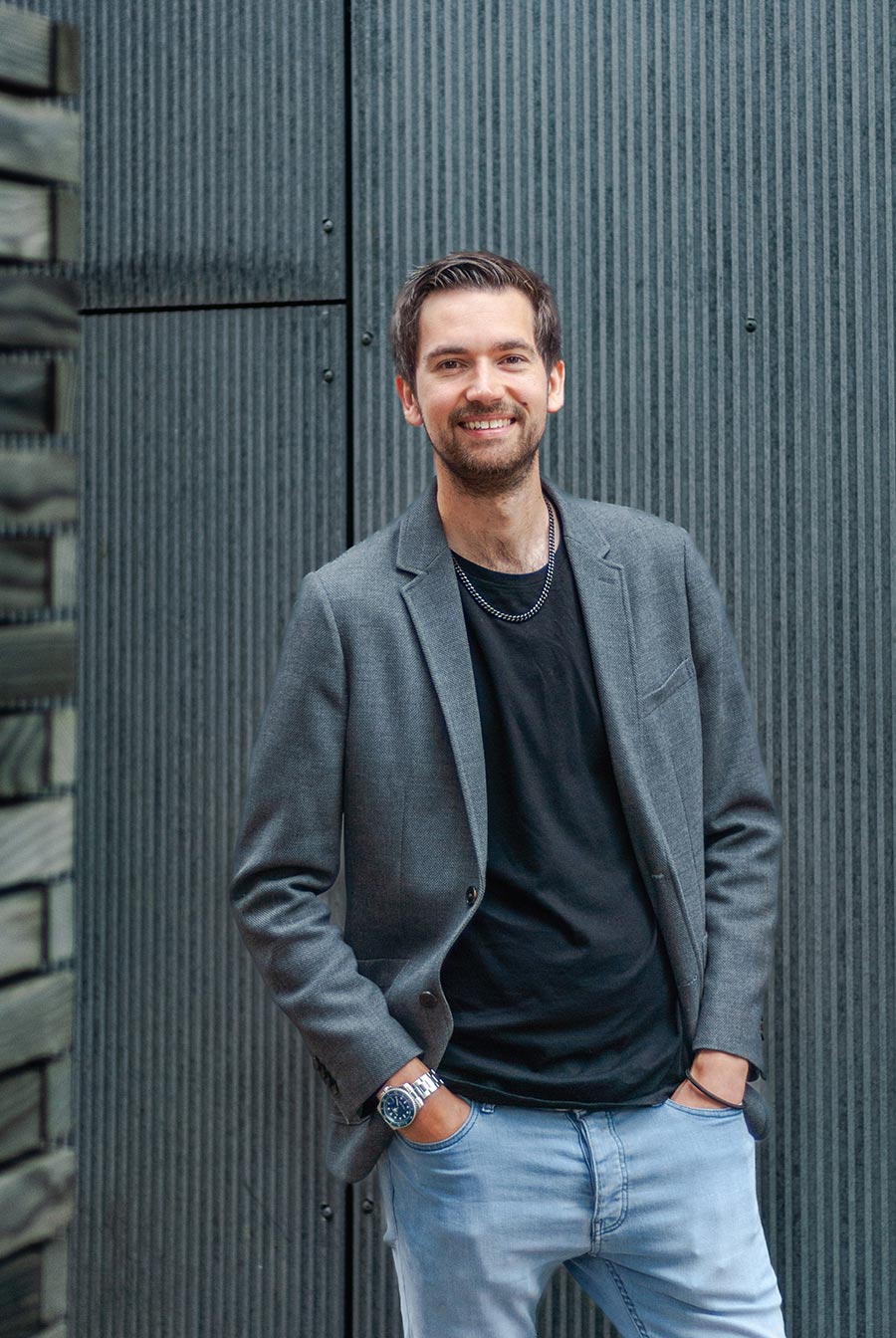
“It made me an entrepreneur. I learned how to build websites, create a brand, manage a big social media following.”
After school, Parkin joined the team at iceSheffield, working his way into events and venue management. But it was during the COVID-19 pandemic, while furloughed and short of income, that he returned to his digital roots.
A friend suggested trying Twitch – the streaming platform for gamers and creatives. His early broadcasts were underwhelming (“one viewer was me, the other was my mate”), but things changed when he discovered ZombsRoyale, a simple browser-based battle royale game with a big player base but almost no streamers.
Seeing an opportunity, Parkin turned his streams into live esports events, complete with a leaderboard, audience participation and commentary. “The viewers went from 20 to 50 to 1,000, then 2,000,” he says. His community moved to Discord, where he built a 10,000-strong server with active moderation and support. Before long, he was a verified Twitch partner – joining an exclusive club just 0.3% of users.
One evening, Parkin received a message from a teenager in Poland, known online as talerik. He was being bullied at school, struggling with anxiety, and found his only safe space inside Parkin’s virtual events.
"I saw so much of myself in him,” Parkin says.
He mentored the young streamer – offering advice, building his confidence and encouraging him to host his own stream. Within weeks, talerik launched his own channel and, in a major step for any online creator, did a live “face reveal” to his growing audience.
A year later, he returned with news: he’d become a verified Twitch partner and landed a job at a tech company. He was thriving – socially, emotionally and professionally.
It was a moment of pride – and clarity – for Parkin. “That’s what MiniVox is based on,” he says. “Lived experience. Helping young people communicate in a space that’s safe.”
Launched in 2023, MiniVox is Parkin’s response to the online challenges facing children today. It’s a digital platform designed for schools and families, allowing young people to create podcasts, videos and stories – all within a safe, educational environment.
Crucially, there are no likes, no comments and no algorithms. The focus is on creativity and communication, not virality or validation.
“We’re trying to teach the value of digital expression, not just digital performance,” Parkin explains.
In primary schools, MiniVox helps develop language and storytelling skills – especially for children with SEND or those who find traditional learning difficult. In secondary settings, the emphasis shifts to online safety, digital footprints and understanding how platforms work.
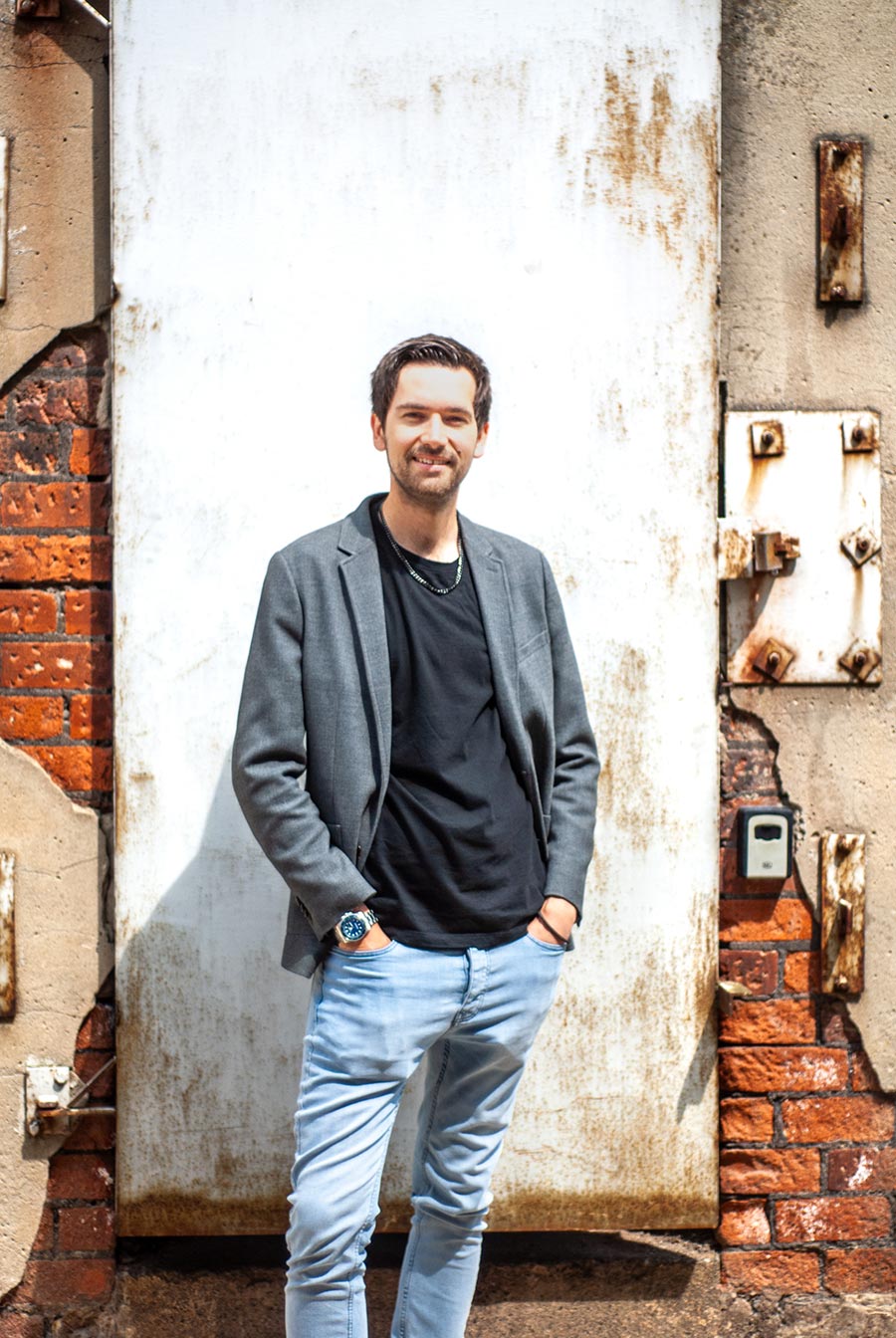
The platform is currently being piloted in Sheffield and even in schools as far afield as Texas, USA. A consumer version is due for release in September, offering monthly creative challenges supported by organisations like Sheffield United Community Foundation, Sheffield Wednesday FC and Pure Pet Food.
Safeguarding is built into every part of MiniVox. Content must first be approved by a parent or guardian, then passes through a second moderation stage by Parkin’s team. That two-layer system aligns with the Online Safety Act and ensures no under-13 user posts content publicly without oversight.
“We know kids are already on platforms like TikTok and YouTube. Rather than pretend that’s not happening, we need to offer a safer, smarter alternative,” Parkin says.
And crucially, the platform also empowers parents to better understand the digital landscape their children navigate every day.
Having grown up online himself, Parkin holds no judgment about how today’s children use technology. But he is concerned about what social media currently rewards.
“Girls are rewarded for wearing less. Boys are rewarded for stunts. It’s risky behaviour being pushed for attention,” he says. “They’re not being rewarded for creativity anymore.”
Through MiniVox, he’s hoping to reset the culture – and give younger generations the tools to shape the internet on their own terms.
“These are the most creative, digitally savvy generations we’ve ever seen,” he says. “They’ve grown up with AI, with instant feedback. It’s not that they don’t want to talk – they just communicate differently.”
Parkin’s digital journey actually started much earlier – aged 11, on Club Penguin. “I was a moderator on the forums – underage, but they didn’t know that,” he admits. His penguin, SteveTParkin, became well known in certain online lobbies, even helping shape parts of the game.
“It was the first time I realised I was good at building community,” he says. “It all started with a penguin!”
As a now full-time founder and father to a two-year-old daughter, Parkin’s mission has deepened. “Since she was born, I’ve become a bit of a feminist,” he says. “I want to tackle the problems I faced – and the ones she might face, too.”
He’s also co-developing a project called Better Mental Wealth, a wellbeing platform using analytics to personalise support across schools, workplaces and community groups.
Asked by James if he feels successful, he laughs. “People say, ‘You must be rich.’ I’m not. I’m quite broke, actually. But that’s entrepreneurship. You take risks to solve problems – and when you find a solution, you end up putting the reward into fixing the next one.”
The Streaming Landscape: Fast Facts
15.6 billion hours of gaming content were watched on Twitch in 2024, making it the world’s leading game streaming platform.
The global live streaming market was worth $104.9 billion in 2024, and is projected to hit $712.9 billion by 2033.
Only 30% of children aged 8–17 say they receive regular online safety lessons at school – despite nearly all having had at least one.
Sources: tubefilter.com, Ofcom, Customer Market Insights

